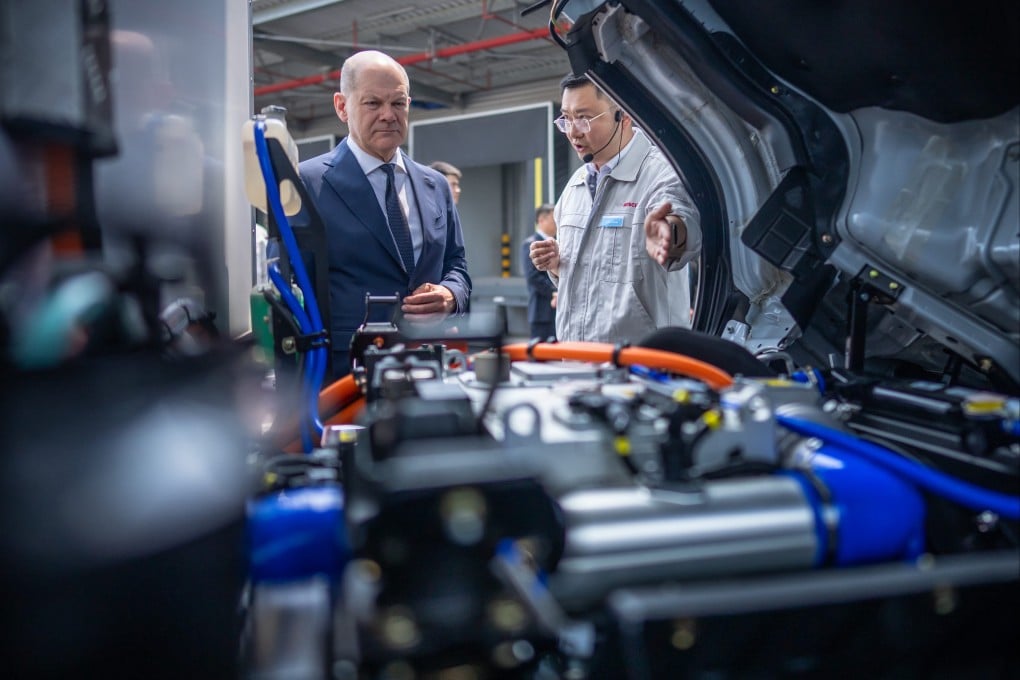German Chancellor Olaf Scholz begins China visit amid mounting European concerns over unfair competition
- Scholz is looking to boost trade ties but the visit takes place at a time when Brussels has started a subsidy probe into Chinese electric vehicle makers
- The German leader is accompanied by a number of senior business executives and is expected to meet President Xi Jinping later in the trip

Scholz is accompanied by a large business delegation and is hoping to use the trip to shore up economic relations.
The Chinese foreign ministry said he would meet President Xi Jinping and Premier Li Qiang later in the visit to discuss the relationship between the two countries and issues of common concern.
His party includes Germany’s environment, agriculture and transport ministers as well as business leaders such as BMW chief executive Oliver Zipse and executives from Mercedes-Benz and Siemens.
This is Scholz’s second trip to China after he took office, following his first visit in November 2022. He is also the first leader of a major Western country to visit China this year.
Pang Zhongying, a chair professor of international political economy at Sichuan University, said Scholz’s visit was likely to help German companies, especially in the new energy vehicle industry, further develop their business in China.
